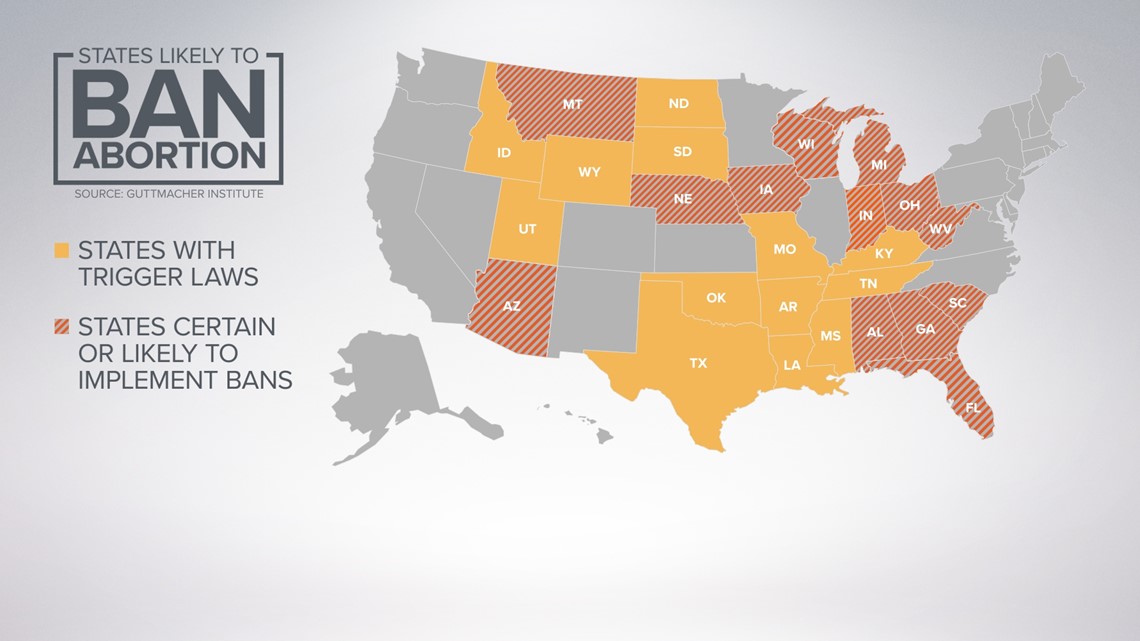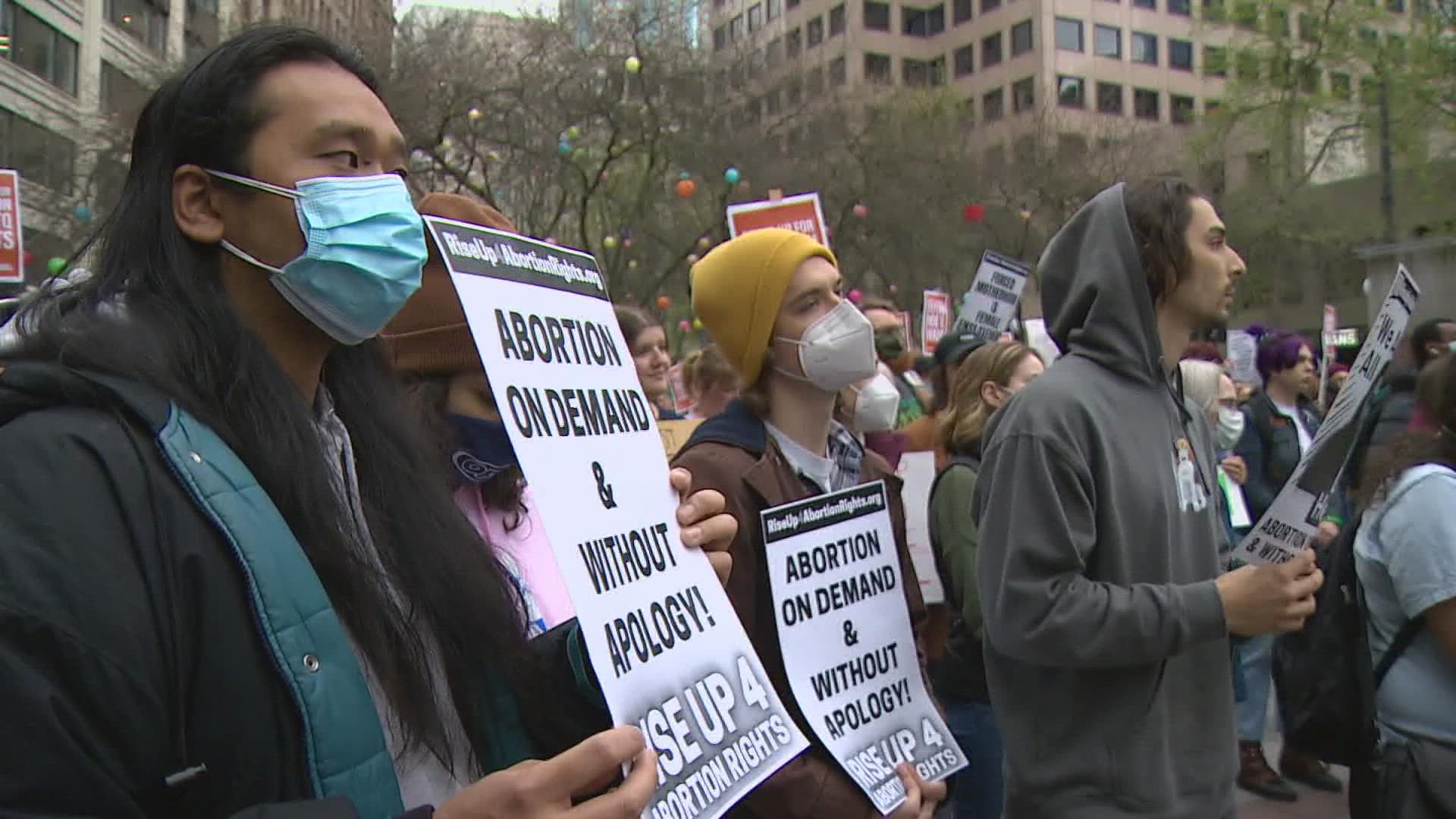SEATTLE — Washington state could see a 385% increase in patients seeking an abortion if Roe V. Wade is overturned by the U.S. Supreme Court, according to a study released by the Guttmacher Institute, with most potentially coming from neighboring Idaho due to its trigger law to ban abortion.
According to the Guttmacher Institute, a pro-abortion rights think tank, twenty-six states are certain or likely to ban abortion if Roe v. Wade is overturned.
22 of the 26 states already have total or near-total bans in place, including Idaho.
Idaho's trigger law, passed in 2020 and signed into law by current Governor Brad Little, would ban all abortions except in cases of rape, incest or to protect the life of the mother. That law would take effect 30 days after the final U.S. Supreme Court decision.


The Guttmacher Institute published an interactive map where readers can view how a total ban, a 15-week ban and a 20-week ban would impact driving distances for people seeking an abortion.
According to the Guttmacher Institute, in the case of a total ban, the number of patients of reproductive age (15-49) whose nearest provider would be in Washington would increase from 110,000 to 510,000. 230,000 is the max number of patients who may travel across state lines from Idaho to seek an abortion.
In March, Governor Jay Inslee signed a bill prohibiting legal action against people seeking an abortion or anyone who helps them.
The bill signing came just days after the Legislature in Idaho approved a bill that allows lawsuits by potential family members to enforce a ban on abortions performed after six weeks of pregnancy. Governor Little signed the bill a week later.
Washington's measure, which takes effect in June, prohibits the state from taking any action against an individual seeking to end their pregnancy or for assisting someone who is pregnant in obtaining an abortion.
The language is in response to a Texas law, which took effect last September, and which bans abortion after roughly six weeks of pregnancy and makes no exceptions in cases of rape or incest. The enforcement of the law is left up to private citizens, who can collect $10,000 or more if they bring a successful lawsuit against a provider or anyone who helps a patient obtain an abortion.

